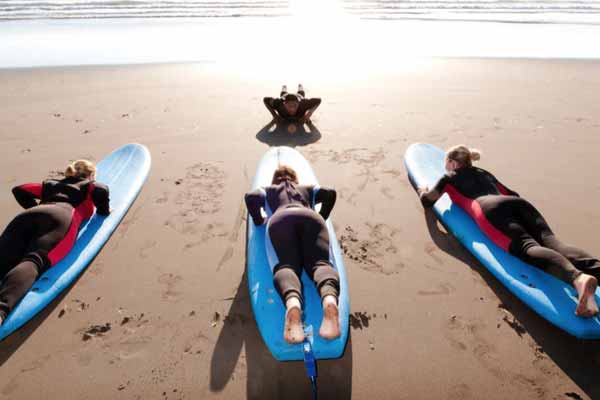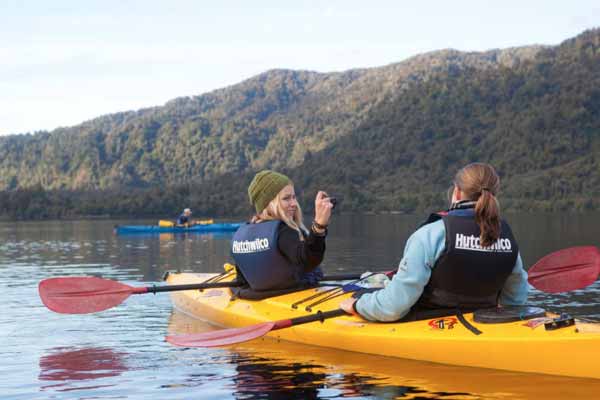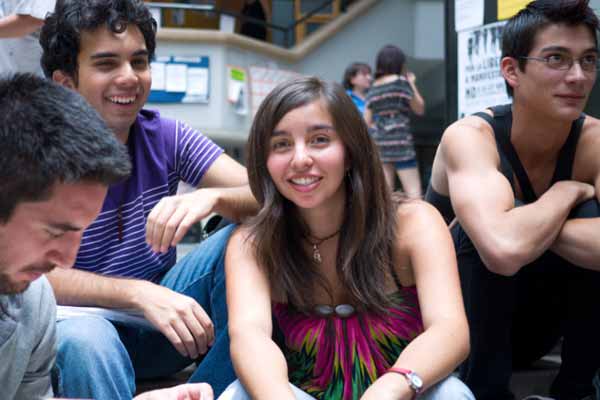students, workers & explorers going to New Zealand & travelling from New Zealand.

Answer our simple questions to get started


InsurancesafeNZ provides three different travel insurance policy categories: Studentsafe, Workersafe and Explorersafe. This means that if you’re travelling to New Zealand, travelling within New Zealand or temporarily leaving New Zealand, we have something to offer you. Use the Policy Finder to narrow your policy search and get a quote. Our website is also packed with great information on how to keep safe, how to make the most of your time abroad and how to understand your travel insurance policy better. If you need further assistance contact one of our friendly staff on our toll-free number 0800 486 004 (within NZ) or +64 9 488 1638 (outside of NZ).
Studying in New Zealand is an adventure of a lifetime, which is why a range of unexpected bumps and accidents are covered under Studentsafe policies.
But when it comes to certain medical conditions, you may not be automatically covered. That’s why it’s important to disclose any medical conditions you want cover for.
The term “Pre-existing Medical Conditions” is commonly used when applying for insurance. This refers to your medical history and the full definition can be found on
Being in good health is key to embarking on an exciting study adventure in New Zealand.
Anyone planning to study in New Zealand for more than three months is required to apply for a student visa.
When applying for a new or to renew a visa, you may need to provide New Zealand Immigration with medical information to demonstrate an acceptable level of health.
Studentsafe policies do not cover medical costs for your visa application.
Studentsafe policies are desig
Your wellbeing is important which is why Studentsafe provides cover for medical and related expenses.
But before you make an appointment for check-ups related to your health, it’s important to understand what is and isn’t covered under your policy.
Studentsafe does not provide cover for certain medical tests listed as Exclusions under Section 1: Medical and Related Expenses as set out below:
9. Health screening, medical and dentals reviews or vaccinations.
&
Staying healthy plays a vital role in making the most of your study adventure. If you have been prescribed medication and are looking to make a claim, it’s important to understand what is and isn’t covered under your policy.
Just because a certain medication has been prescribed by your doctor, it does not mean that it is automatically covered.
Studentsafe does not provide cover for certain medical tests listed as Exclusions u
Keeping mentally well is important to make the most of your study adventure.
While studying away from home is an exciting life experience, there are times you may feel overwhelmed or experience loneliness, stress, anxiety and depression.
During these challenging times, it’s important to recognise the pressures you may be under, whether it’s adjusting to a new environment or the added load of assignments and exams.
If you need professional help, you can feel assured knowi
If you’re reading this article, you’ve already made a sensible choice. If you’re in a new relationship, or thinking about starting to date, it’s important to think about how you can ensure that you and your partner stay safe when you’re having a little extra ‘fun’.
So read on to learn more about what steps you should be taking to keep safe. The consequences can range from irritating to life-threatening – and that isn’t a gamble anyone should take.
Any new culture will have customs that you will start to learn very quickly as soon as you arrive! To give you a head start on your time in New Zealand, we’ve got a few key bits of information about Kiwi culture – and a whole lot of detail about speaking like a local!
When you’re walking the streets of New Zealand – or even when you’re still at the airport and navigating escalators – it’s good to remember that we drive on the left, not the righ
Unless you’re really into skiing, winter in New Zealand isn’t really the most exciting time of year. It’s not cold enough for there to be pretty snow falling in the cities, but it’s still cold enough that you don’t want to spend time outside unless you have to. Instead of snow, we mostly get rain and wind. It’s certainly not terrible – but it does give you a good excuse to go somewhere sunny if you have the time and budge
Adjusting to a new workplace comes with challenges wherever you are in the world – and if you're in a new country as well as a new workplace, those changes can be even more extreme. New Zealand culture is quite friendly and informal, and this extends to many workplaces. But it can be difficult at times to understand where the limit is – how casual is too casual and what will make you look unprofessional? How formal is too formal and what will make you look too unapproachable?
Some of
Everyone experiences periods of stress in certain situations – perhaps exams are coming up, or you’ve spent a little more than you intended to at dinner and pay day is still a couple of days away. That’s a normal part of life, and most of the time, it goes away fairly quickly when the source of the stress comes and goes. You pass your exam, you check your bank account and ther
A healthy worker is a more productive worker. It seems like an obvious statement to make, but in today’s working world, many workers feel that they have keep pushing and pushing to get results – even at the expense of their health and wellbeing. Workplaces need to be more supportive of their staff to make sure that they feel they are able to take time to get healthy if they are unwell, or to express their concerns if they are overburdened with stress.
Ask any adult what their student years were like, and there will almost always be two things that everyone has in common – lots of fun, and hardly any money! But if you’re new to a city or even a country, it can be hard to know where to begin when it comes to finding social activities that you can do on a student budget.
To help you out, we’ve rounded up some of our top tips for free and cheap things to do in New Zealand’s main student cities and towns to get you started!
Flatting doesn’t have to be expensive. There are a number of ways you can set up a flat on a budget without losing out on quality and the occasional treat. To make sure that you get the best experience possible no matter what your income may be, we’ve brought together a few of our favourite tips and t
When you’re away from your family and community that feeling of homesickness can feel very overwhelming. Making friends and keeping busy are the easiest ways to prevent homesickness – but you need to put the effort in. If you sit at your computer looking over your soci
When you’re planning adventures overseas, there’s so much excitement that it can be easy to forget about the parts of travel that are a little less glamorous. Organising travel insurance may not be as thrilling as planning your routes and researching the major attraction
For many people, the shift from university study to the working world is one of the biggest changes they will ever experience. Life until that point is focused on formal education – sitting in class, doing homework, taking notes… and then all of a sudden, it’s time to step out into
No matter where you go in the world, someone will tell you to keep safe and often there’s a good reason for it. When travelling or moving somewhere new it can be tempting to step outside of your comfort zone and give everything a go. While this is a great attitude it’s important to explore your new surrou
Relocating to a new country for work is hugely exciting. Getting a new job and home and navigating new cultures, practices and languages is an immersive experience and can be incredibly consuming.
An “out with the old, in with the new” approach can be tempting – after all, you’re making a
In general, the younger your children are the easier it will be for them to pick u
For many of us, our pets are part of the family. For expats intending to move overseas with their pet, planning and research before the move is essential. It is crucial to ensure the welfare of your beloved pet during and after transit, and that regulation surrounding the importation and exportation of pets is complied with.
Research animal import regulations for your new country of residence, to determine what conditions must be met for your pet to be allowed en
When you’re away from your family and community that feeling of homesickness can feel very overwhelming. Making friends and keeping busy are the easiest ways to prevent homesickness – but you need to put the effort in. If you sit at your computer looking over your social media accounts and wishing you were back home instead of living your life in the moment and getting out meeting new people, your time abroad might seem like a waste of time.
Making friends can be hard at the best of times even for those who haven’t moved to a completely new city. So to make things easier we’ve come up with a number of ways that can help you have the best experience possible. Hopefully you’ll create lifelong friendships because friends who travel together (even for a short time) have shared experiences that can keep them connected for a lifetime.
Contact your International Students Office
Universities or tertiary institutions with international student or exchange programmes will have specialised support networks in place. You may need to seek them out – there’s so much happening at the start of the academic year that it can be easy to miss something but there will be useful opportunities to see what events may be coming up. It is worth going to these events as there will be people who are in exactly the same situation as you. Keep an open mind because you never know who you might connect with!
Get involved – say yes!
There is no time like the present. Your study abroad experience is one time in your life when you can really get out and experience the world. Yes, you do have to do your study but unlike your friends back home you should be making the most of your time and exploring your new environment. It’s time to start creating memories and stories to share with your friends back home and even your future children. So when someone asks you if you want to do something don’t be afraid to join in (within reason – you don’t want to end up in a dangerous situation!). Use travelling to reward yourself for doing all of your study – you may find yourself working more efficiently than ever.

Make the most of Fresher’s Week
Whether they call it Fresher’s Week, O Week, Frosh or Welcome Week most universities and tertiary institutions have some sort of orientation event at the start of term – so get involved! Everyone is in the same boat so it’s the perfect time to make new friends. Often there are bands playing or sports events happening so take the time to get along to the activities that you are most interested in and you may meet people with similar interests.
Find a hobby
Is there something that you have always dreamed of trying? Like hiking or skiing? Your tertiary provider or university is a great place to take up a new hobby or to invest time in an old one. Hobbies are also a brilliant way to make friends and you’re guaranteed to meet people with the same interests as you.

Join a club
Tertiary providers and Universities all over the world tend to have student unions and clubs which can be a great place to start looking for what to get involved in. Take up any opportunity presented. A lot of these clubs are very open to having complete novices join their teams and will teach you along the way.
Get social
If you can’t find a group that you are interested in participating in or you simply want to meet a range of different people, websites such as Meetup.com can be helpful. You can also host your own event and promote it on the site to get others who are interested in getting involved on board.
Facebook can also be a good place to type in your interest to see if there are any groups that come together near you. If you can’t find any groups on these sites, Google your interest and the area you are in. The results may bring up some more specialised websites or groups that are active in your city.
It is important that you take steps to keep yourself safe when engaging with new people online or meeting them in person. For example, you might want to meet people in a public place and tell someone you trust where you are going. Netsafe also provide good advice on how to keep safe online.
Meet up with friends of friends
Before you leave your home country ask around among your friends and family to see if anyone has been to the country you are going to or knows of anyone who lives there. If you are able to do this then you have someone who you can then meet up with when you first arrive and who may be a good connection for meeting more people in the country you are studying in. Having connections can make that initial contact a bit easier and help you feel like you’re getting a warmer welcome to your new home.
Get to know the people you live with
If your roommate (flatmate) is a local or has friends that are locals encourage them to invite their friends over for a meal. Having one common connection can often open up a realm of other connections. Don’t be shy about asking to tag along if your roommate is going out – it’s always better to be socialising then stuck at home with your own thoughts. Plus, you’ll be creating exciting new memories that you can relive with your roommate the next day!
Sit next to a local in class
Classes can be crowded but often they’re crowded with people who live all over the place and who may not know anyone else. By simply asking for the time you can strike up a conversation with the person next to you. If you have any tutorials or labs these can be even better for meeting new friends as there are fewer people and more chances to interact rather than just listening to a lecturer speaking. More often than not, as soon as someone realises you are from a different country they will make an effort to find out where you are from which can lead to an interesting conversation.

Learn a language
If you’re not already fluent in the language of the country you are in, making an effort to become more fluent by attending classes can introduce you to others who are in a similar situation to you. Anyone who has travelled extensively will understand what it’s like to not speak a language fluently and generally locals appreciate it when newcomers put in the effort to communicate clearly.
If you do speak the language fluently, learning another language may introduce you to new people who are interested in travelling, which may give you the perfect opportunity to gain a travel buddy.
Go on excursions – stay in backpackers!
Backpackers (hostels) are a great place to meet new people. Everyone has the same objective to explore a new country and make as many memories as possible. Head to the communal areas and just have a chat. You can see where the other travellers are from and what they have been doing. Find out what they intend to do over the next couple of days and if it aligns with your plans and they seem like decent people – see if you can tag along!
Make a bucket list
Research the country you’re living in and create a bucket list of things to do while you’re there. It gives you a purpose and is a great conversation starter. You will also meet people on your travels who may be staying in the same areas as you. It will keep you focussed on your next adventure and keep your mind off of what is happening back home if you’re feeling distracted by homesickness.
Smile and be open
Smiling is contagious and will attract people to you. If you look open and happy others will want to get to know you. Being open to new experiences and having a positive attitude can go a long way in helping you make new friends.
All in all, it’s about being safe while you are abroad. Make sure you have someone who knows where you are and when you are due home when you go out. Keep an open mind and give new experiences a go. You never know what you might enjoy or who you might meet on your next adventure – it could be your next lifelong best friend!
